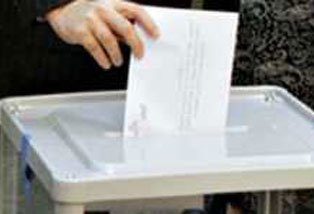Ani Chankotadze, liberali.ge
International Society for Fair Elections and Democracy (ISFED), Georgian Young Lawyers Association (GYLA) and Transparency International Georgia (TI Georgia) met with the international organizations and representatives of embassies accredited in Georgia and introduced the results of meeting with the head of Legal Issues Committee of Parliament Pavle Kublashvili conducted on September 30th.
The NGOs underlined the shortcomings in the draft law and introduced the issues which the government agreed to change, the changes which they were open to and the issues they categorically refused to change.
The director of ISFED Nino Lomjaria explains that the most problematic part of the new code is the model of the election system itself. Government categorically refused to change system model at the meeting. Despite the remarks and recommendations, government is not going to discuss the issue of changing election system.
As it was said at the meeting some paragraphs of the new election code are more problematic than old ones. Following provisions are taken out from the new draft law: marking procedure, setting cameras in elections districts, the right of representatives of NGOs, media and political parties authorized to observe the elections to take photos and videos. There is not commission which will monitor the equal access of political parties to administrative resources.
According to the draft law, establishing election lists and making changes is no longer the obligation of Central Election Commission and this function belongs to the competence of NGOs and representatives of political parties from now on.
Nina Khatiskatsi representative of TI Georgia states that this is an inadequate model. NGOs do not have sufficient competence to fulfill such obligation and they should only be obliged to establish recommendations and note on the shortcomings.
Three NGOs remarked on the issue of financing of political parties. According to the draft law, all political parties who pass the threshold will receive one million GEL. According to NGOs, million should be maximum money and in case of passing the threshold these parties should be paid the exact amount they spent and nothing more. Otherwise, the politics would become a business.
The head of GYLA Tamar Chugoshvili considers that though the government refuses to make system changes, it is still possible to form the fair election environment if they make the changes they were open to.
As for the election system, the three NGOs think it is unfair since the principle of equal weight of votes will be violated – there are regions where 6000 citizens are represented by one deputy and regions where one deputy represents 100 000 and more.
Another system problem is big number of majority deputies the number of which will be increased by 40 more deputies in the nearest future.
The NGOs negatively evaluate the increased number of majority deputies since in this way the party which is supported by small number of population may turn into the parliamentary majority which is unfair. In other words people choose concrete politicians and not the political party and its program.




